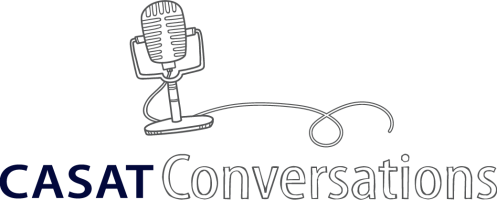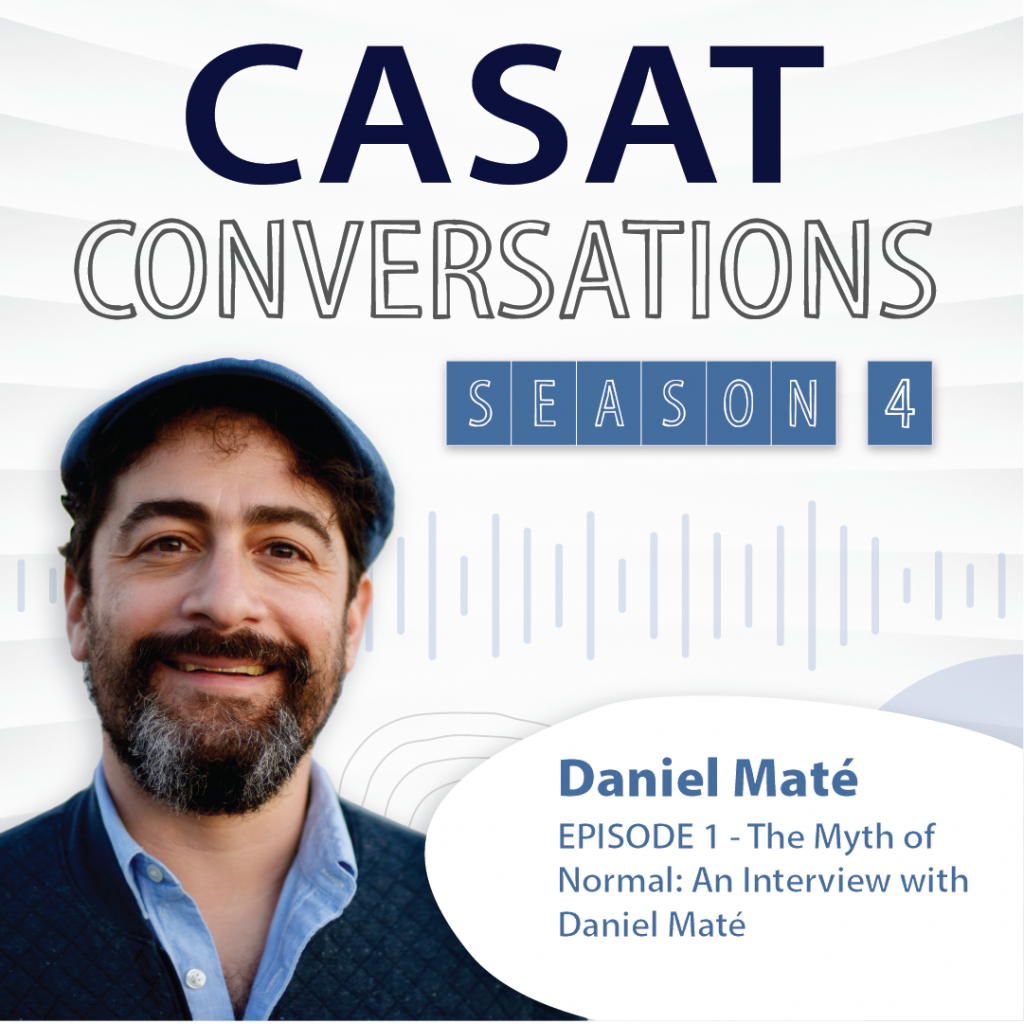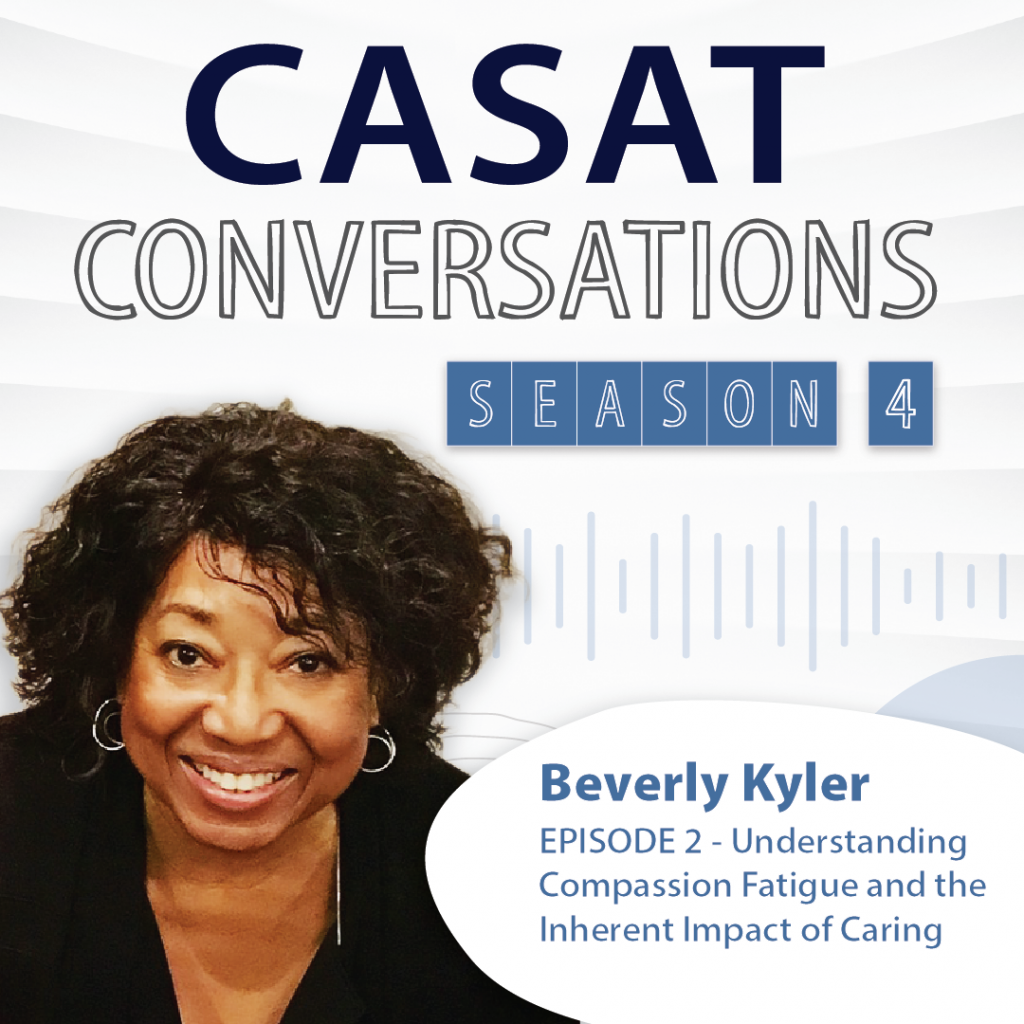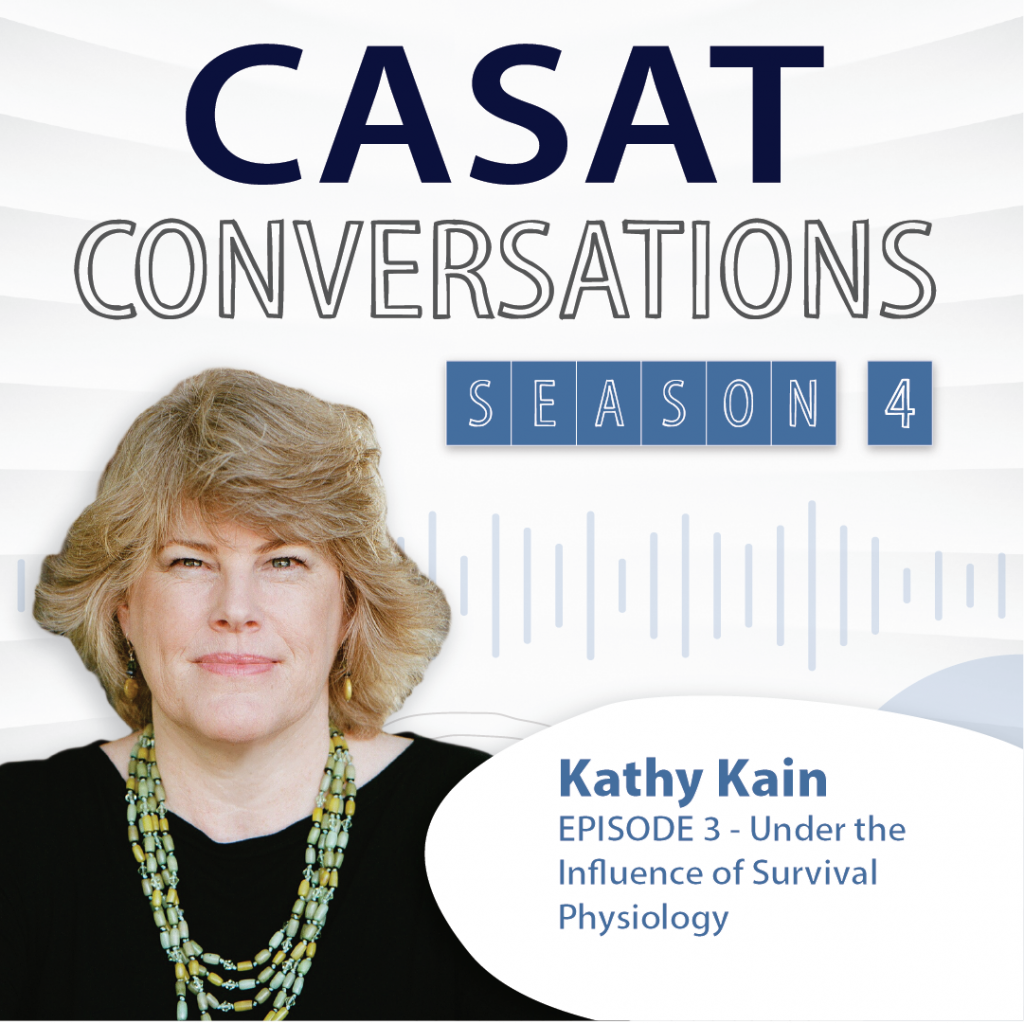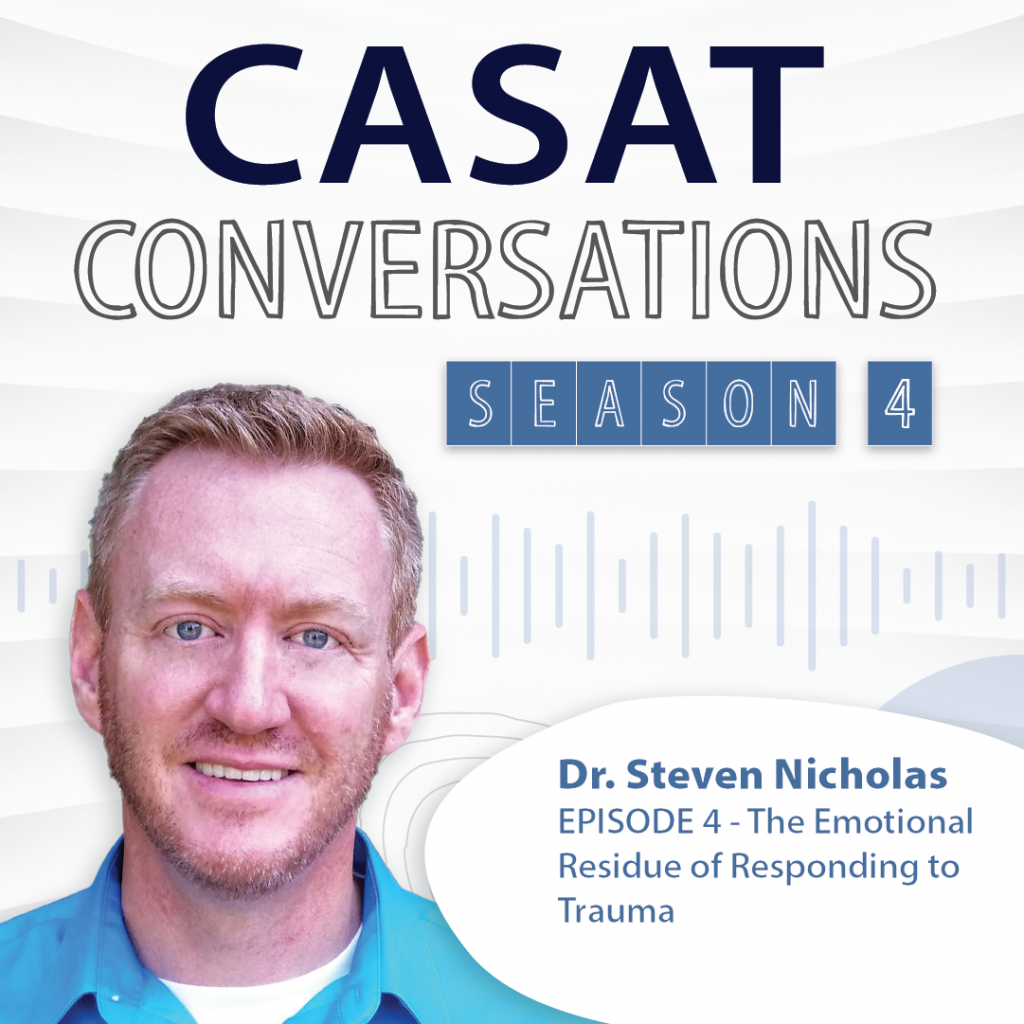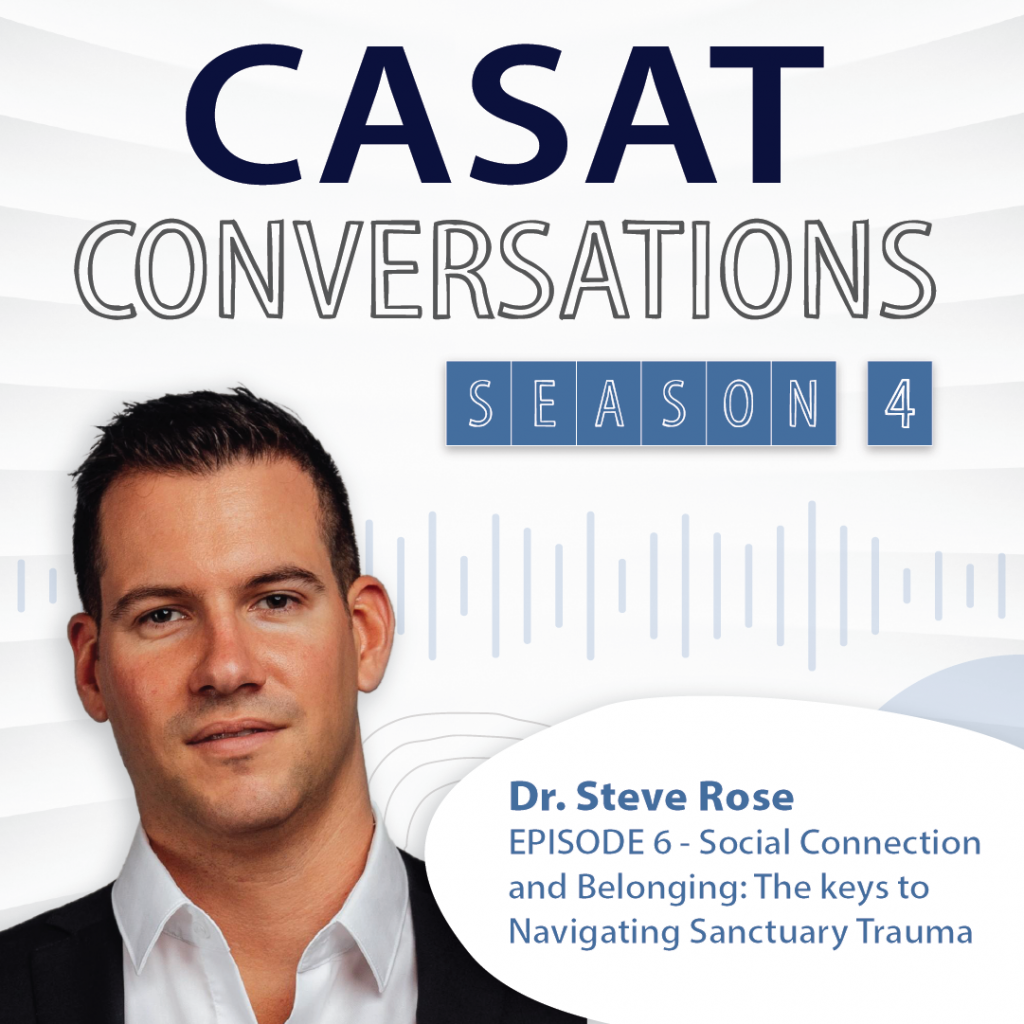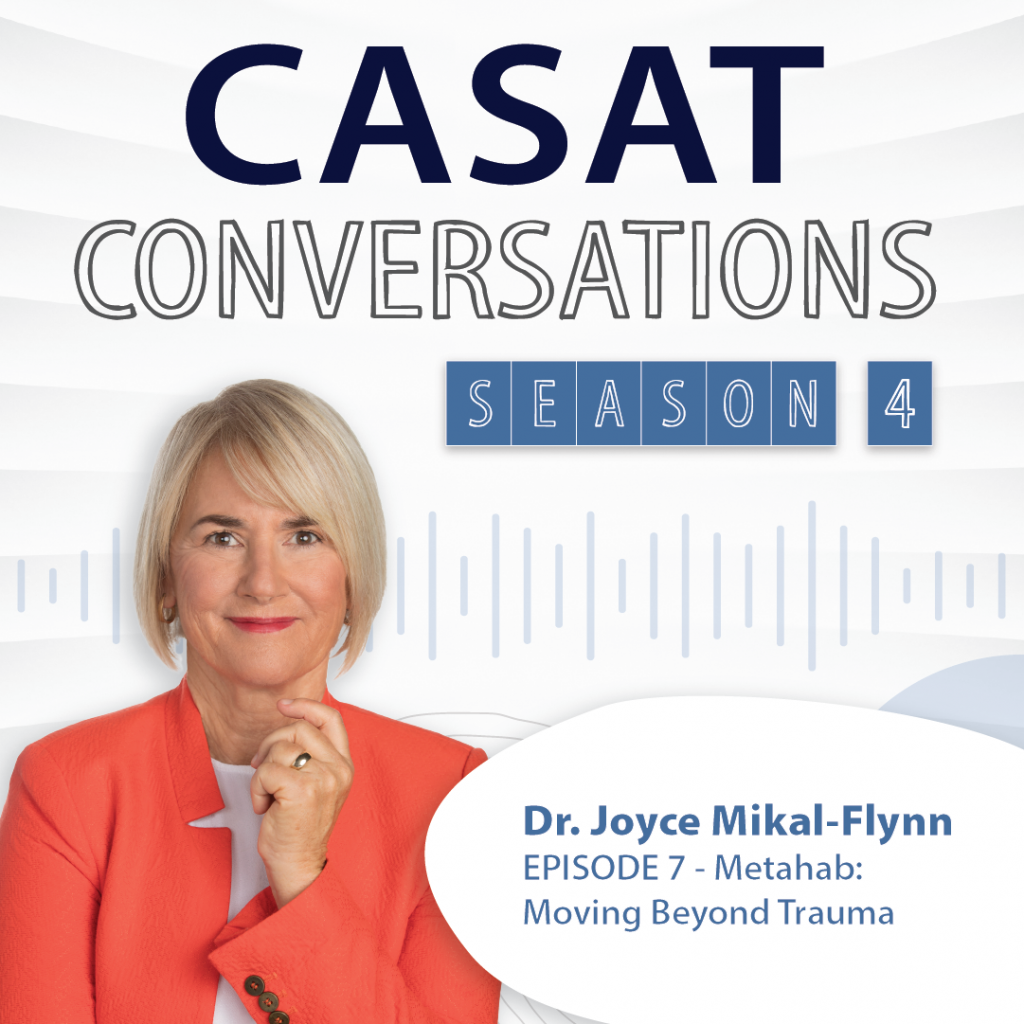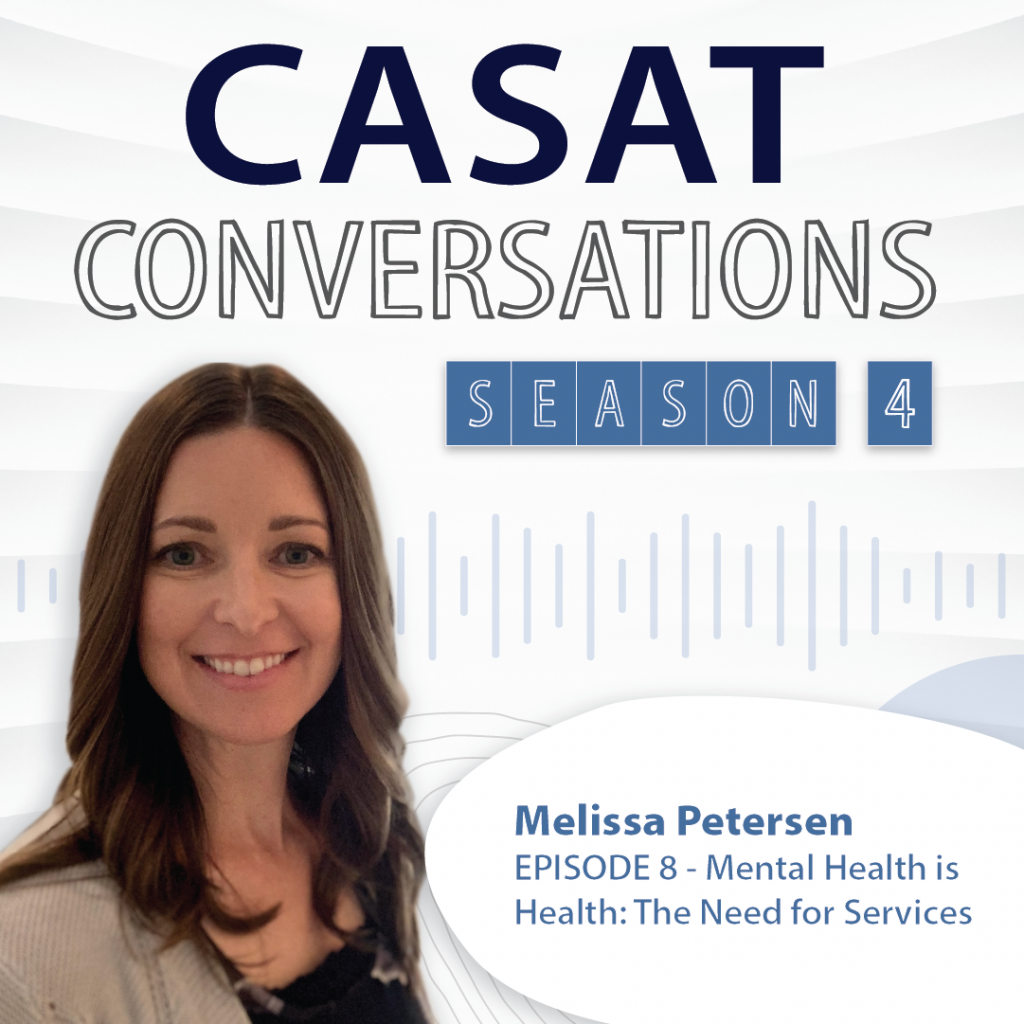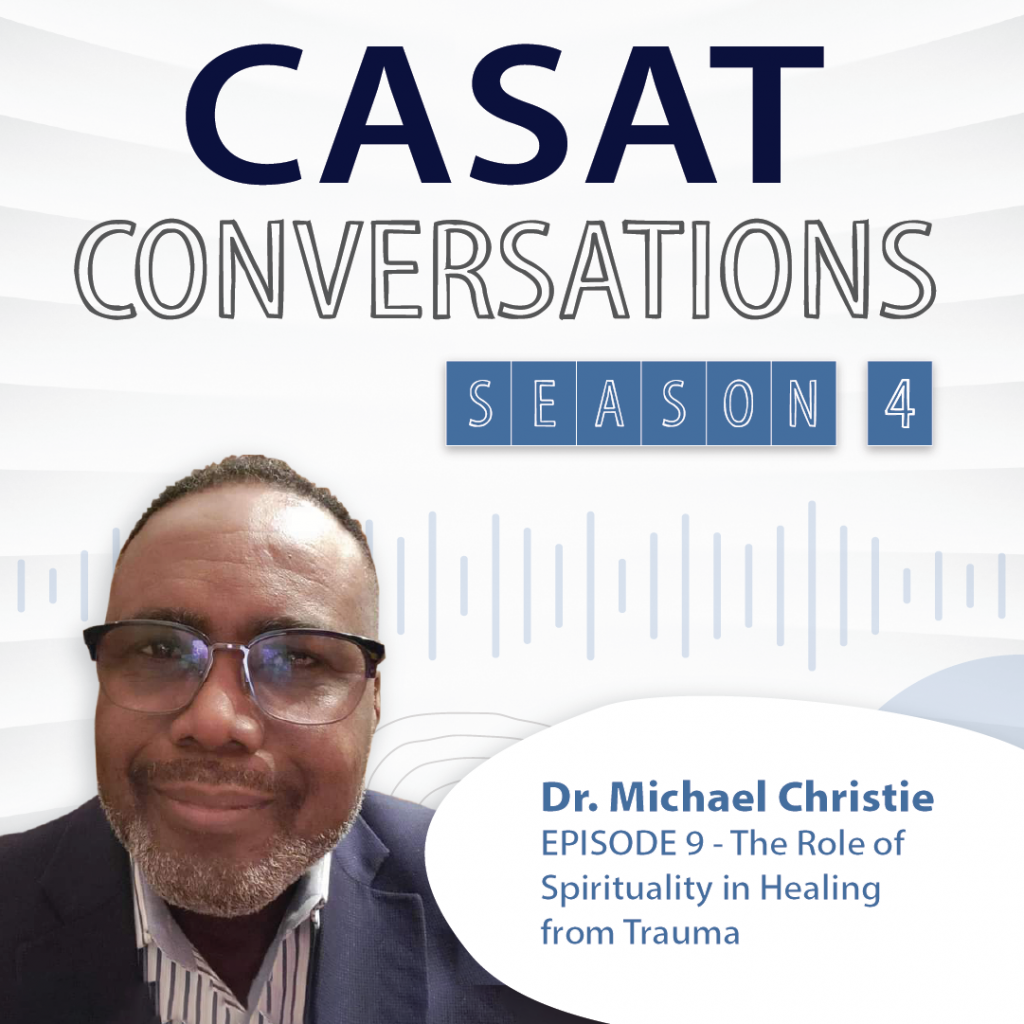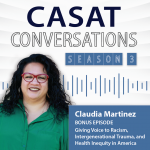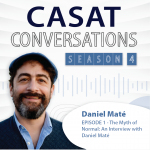Season 4: The Impact of Trauma on Our Humanity
This season delves into the topic of secondary and vicarious trauma experienced by people who work in the field of human services. You’ll hear from researchers, authors, clinicians, and people with lived experience who share about the importance of this topic, along with ways to care for yourself, and the value of having a community of support. In each conversation, we hope you find a nugget of information that will support you in the work you do.
Host: Heather Haslem
S4 E1: The Myth of Normal: An Interview with Daniel Maté
Episode 1: The Myth of Normal: An Interview with Daniel Maté You won't want to miss this dynamic interview with Daniel Maté, co-author of The Myth of Normal: Trauma, Illness & Healing in a Toxic Culture. We discuss the pervasiveness of trauma within society, and interplay between trauma and health. You'll also hear about his [...]
S4 E2: Understanding Compassion Fatigue and the Inherent Impact of Caring
Episode 2: Understanding Compassion Fatigue and the Inherent Impact of Caring In this episode Beverly Kyler, an author, speaker, and compassion fatigue specialist shares the wisdom she's developed over the course of her career. Through her own personal experience with compassion fatigue, along with her research, she now dedicates her career to helping those who [...]
S4 E3: Under the Influence of Survival Physiology
Kathy Kain joins us for her second enlightening conversation. Kathy is a wealth of information with her 42 years of experience, and she shares the impact that she’s seen both on herself, and in colleagues who do the work of supporting trauma survivors. We discuss trauma physiology and survival habits due to secondary traumatic stress, along with resilience habits that human services teams can adopt.
S4 E4: The Emotional Residue of Responding to Trauma
In episode 4, you’ll hear from Dr. Steven Nicholas an author and practicing marriage and family therapist. He shares about his work with first responders and highlights how their emotional needs are different from the general public. He describes what it means to be a culturally competent clinician when it comes to working in the first responder community, and what it takes to serve them well. Key words: warrior servants, living ideation, trauma, vicarious trauma, critical incident stress management, crisis management, emotional first aid.
S4 E5: Real Stories of Healing
Nick Brown shares his lived experience as a veteran, paramedic, firefighter and peer support specialist. He gives voice to the impact of unhealed PTSD on his personal life, and the many techniques he’s tried to heal over the last couple of years. He also notes what’s been most helpful. You won’t want to miss this real and vulnerable conversation.
S4 E6: Social Connection and Belonging: The keys to Navigating Sanctuary Trauma
Dr. Steven Rose joins us this week to discuss his research with Verteran’s and how social connection plays an important role in preventing and healing trauma. We discuss many relevant theories including transitional injury, sanctuary trauma, and moral injury and how these theories may apply to first responders and health care professionals.
S4 E7: Metahab: Moving Beyond Trauma
Within this conversation, Dr. Joyce Mikal Flyn, an expert in resilience and trauma care joins us. We discuss post traumatic growth, and the 6 stages of meta-rehabilitation that Dr. Joyce discovered from her many conversations with trauma survivors. She highlights commonalities among found among trauma survivors, and the program she’s developed based on people’s lived experience of finding meaning after trauma.
S4 E8: Mental Health is Health: The Need for Services
Melissa Petersen, a practicing Marriage and Family Therapist, joins us to discuss her experience as a Wildland Firefighter, along with her passion for supporting the mental health of first responders. She shares how she has seen the first responder culture change with regards to mental health over the course of her career, along with how she hopes to see mental health evolve in the future. In addition, we discuss one of her favorite treatment modalities.
S4 E9: The Role of Spirituality in Healing from Trauma
Dr. Michael Christie is a chaplain for the Department of Correction. He has been working within the prison system for over a decade. In this conversation, he shares the role of spirituality in healing from trauma, and lessons he learned about the need for trauma-informed care.
S4 E10: Remembering our Humanity
Dr. Anne Weisman is the Director of Well-Being & Integrative Medicine with Kerkorian School of Medicine at UNLV. She joins us to discuss how she has worked to restore well-being within the field of medicine, along with her wealth of experience teaching mind-body medicine. She shares practical ways she supports herself when working with people who have experienced trauma.
S4 E11: Moving Out of the Shadows and Into the Light with Sam Quinones
Sam Quinones joins us to discuss his book, The Least of Us: True Tales of America and Hope in the Time of Fentanyl and Meth. He shares what he has learned about the opioid epidemic over the last 10 years, and how the landscape has changed.
S4 E12: Everyone Has A Role In Implementing Crisis Care
Dr. Charlie Smith is the Regional Director for the Substance Abuse and Mental Health Services Administration (SAMHSA) with the U.S. Department of Health and Human Services. In this important episode, you’ll hear about the evolution of the crisis care system, and how 988 is working to meet the burgeoning demand of our mental health crisis. We discuss the role of the government in supporting mental health, and ways that each of us can support the crisis care delivery system.
Disclaimer: This podcast is for educational purposes only. Any advice offered on the podcast is an educational context and is not intended as direct medical advice, nor as a replacement for it. If you are experiencing a medical or life emergency, please call 911. If you are experiencing a crisis, please contact the National Suicide Prevention Lifeline at (800) 273 – 8255. If you are experiencing stress, and would like professional help please contact your insurance company to identify a therapist in your area or contact the organization you work for and ask about an employee assistance program.
This podcast has been brought to you by the CASAT Podcast Network located within the Center for the Application of Substance Abuse Technologies at the University of Nevada, Reno. For more podcast information and resources visit casat.org/podcasts/.

